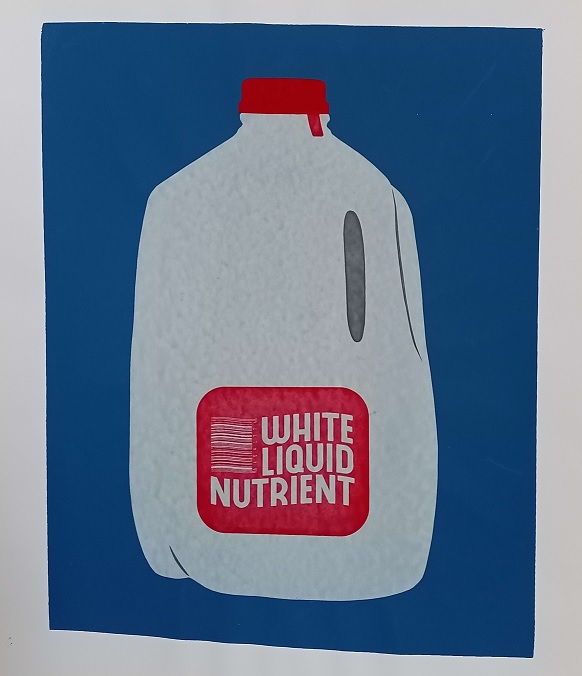I have been working a very labor intensive job for about 3 months now and have lost enough inches on my waist to go down two pants sizes yet my total weight when I go on the scale remains around the same. How is it possible that I lost 4 or 5 inches off my waist yet the scale doesn’t change? Is it possible what weight in fat I am loosing is made up for with an increase in muscle mass?
Yes.
Muscle mass is significantly heavier per unit of volume than fat is. Around 15-20% heavier. Muscles also fill in around the bones first instead of on the surface of the skin like subcutaneous fat.
To add on, this exact scenario illustrates why BMI is not always the best measure of health, because it only looks at height and weight. Measuring waist circumference and body fat percentage should give you a better-rounded picture of how you’re doing
While true, 95% of the people saying BMI doesn’t work well are coping fatties.
Let me add- not only are they mostly coping fatties, they co-opted truths for the other end of the spectrum (extreme low BMI) and started claiming the same for themselves. Yes. BMI is a poor indicator of health in weight lifters. 500 lb people do not share that outlier.
I say this as a fat person who will likely die fat, who feels no guilt or shame or any negative internalized anything. It is a fact. I am fat. I will likely be fat for the rest of my life. It’s as clinical to me (I work in healthcare) as the sky being blue or my patient being bradycardic- it is what it is and the sooner we stop pretending it’s anything more than that, the sooner we can all move on to the more important realities of dealing with the consequences.
I’m not going to say anything you’ve probably heard 10 million times, so I’ll just say that you seem chill and I hope it doesn’t cause you to suffer too much.
% is too high. When i worked out a lot and biked to work, i had 31" waist and 26" thighs. Dr. visit said I was Obese on BMI. it does not take into account body type.
Depending on the type of work you are doing, you could be losing fat while gaining both muscle and bone density.
If you were mostly untrained/inactive before starting this job, you’ve most certainly grown/densified a lot of bone.
That’s what happened to me with my previous job. Family and friends kept telling me that I look good and thinner but the scale was more or less the same. I do feel better and went down a size so it’s a win for me overall.
Muscle is denser than fat. You can “gain weight” while losing volume.
Also location it’s stored. Some people carry it differently, but fat often builds up around a persons mid-section and causes that pear/apple body shape. Muscles gain bulk on the ones being used. A person can loose the inches of fat around their waste, then build up muscle mass in their arms/shoulders. The fat loss is noticeable because a person starts using a different belt notch or their pants fall down, but the added muscle bulk around the arms will be less likely to require replacing/adjusting one’s clothing.
you have “bot account” checked on the settings.
Thanks for the heads up!
My doctor calls this remodeling
I didnt know bone density changed naturally, I thought you had to fracture it a bunch of times to build density. Very interesting!
Yes it is so caleld body recomposition. You can burn fat and gain muscle at the same time, thus maintaining the same weight. You will look thinner though, the good kind of thinner with a better build.
This cycle is what I go through every time I start working out again. For at least a few months, whatever weight I started with is where I’m more or less going to stay but it gets redistributed to places that aren’t my stomach and neck so I ultimately look and feel a lot better even though the scale would argue I haven’t done shit at all.
Its better to focus on body fat percentage than weight. Fancier scales can give you that metric. Cheap measuring tape or the OPs pants test are also good, albeit slower, methods to measure the change.
100% agree although my fancy pants Garmin scale is absolute shit at measuring body fat. Could be there are better but I’ll stick to the caliper test myself.
https://i0.wp.com/baltimorefishbowl.com/wp-content/uploads/2015/05/muscle-vs-fat-500x385.jpg
5lb muscle vs 5lb of fat.
If you replace an equal mass of fat with an equal mass of muscle, your weight will not change but you will be physically smaller.
If you look at this comment, the comparison should more realistically look like this

… can we cook that muscle in that fat please? 🤤
That’s people. We don’t eat people. We’re not aliens from the Twilight zone
With that much clear fat? Imagine how good it’d taste…
I would prefer to say sane, but maybe you’ve had a taste already and it’s messing up your thoughts…
I think more importantly fat and muscle tend to distribute very differently. Muscle doesn’t build up much at the waistline, and for men that’s the first place fat gets deposited
And it’s not even that simple. Assuming a static diet, you’re actually loading that muscle with glycogen, which makes it even heavier because water follows the glycogen. It’s why fasting diets cause pretty extreme weight loss at the start. They make your muscles lighter.
Scales canna tell the difference between muscle and fat. If you’ve being labouring, you likely have developed muscle whilst losing fat.
aye laddy
Yes, they can. I have a scale that is able to tell fat and muscle mass apart
Those scales are generally precise, but they aren’t very accurate. Good if you are consistently using them and using the numbers as a reference to progress, but I wouldn’t going around saying the number is a true representation of your body fat.
You either have a full body scanner or you’re a liar.
Probably a bio impedance scale, they’re very inaccurate though
Correct answer. I got one on sale. I was really disappointed in just how inaccurate their BMI, bio readings were.
It’s likely, it wouldn’t have picked up much difference in the OP even…
The degree of exactitude of these things is so so, but if you always use yours it can give you a guideline.
Basically, what you went through is called body recomposition.
I would assume your job had your muscles placed under enough mechanical tension to stimulate hypertrophy, but you didn’t eat enough to be in a caloric surplus. Otherwise you would’ve gained weight. For gaining muscle mass anyway, I guess your diet was high in protein?
If he has not done much gym-like sport ever (which, if they are surprised by losing fat and keeping mass, it’s probably the case) they are probably on the “noob gains” phase, no need for high protein meals.
I have a lot of experience with weight loss through strict dieting and generally my ‘thinness’ has always been tied with the scale number. Was never much of an excersise person besides basic walking routine always prefered just not eating. My diet does consist of a lot of protein too, though I do try to stay more on the fruits, veggie, and nuts side of it. So its a little jarring for me to be getting thinner while not loosing any total mass since ive never ‘bulked’ before. I really appreciate everyones input on this its good to know im not going crazy lol
True, that would make the most sense
I am the only full time housekeeper at a 3 story mansion turned rehab center. lots of walking, stair climbing, hauling a wagon full of heavy trash bags 500ft one way to the dumpsters and throwing em in, hauling 5gal water jugs up those stairs, vaccuming, and bending over things to clean them. I am also on a strict somewhat high in protein but try to stay on the fruits veggie nuts side of it. Only ever dieted to loose weight so was slightly fustrated by the scale refusing to change. Thanks for your response!
Definitely one of those cases where it’s better to look in the mirror instead of worrying about the number on the scale.
Muscle is over two times denser than fat, so if you gain enough, you might actually weigh more instead of less some day. But you’ll be stronger for it.
Very possible, I’ve maintained about the same weight the last few years while losing fat and gaining muscle.
If your job is very intensive, then its quite possible your putting on muscle as well
Muscle is much denser than fat, too. So its possible to actually lose fat, but gain weight.
You can even shrink your waist and gain weight at the same time as many said, since muscle is heavier.
Also water retention plays a role, depending on what you eat and how much water you drink. It’s normal to oscillate around a kilo that is just water.
Yes, a given volume of muscle weighs more than the same volume of fat. I don’t know if a specific ratio, but it probably varies from person to person.
You’re about to become a hungry boy when all your fat is gone.
I gain weight when I’m pushing hard climbing, but have to tighten some belts a notch more. It’s muscle gains and fat burns.
My last project push I went down from 32 to 31 pant size but had gained 8kg. Fittest I’ve been in my life and sent my climbing project :)
It’s funny, I was literally having this exact conversation with my wife last night.
It’s actually, as others have said, surprisingly likely. You’re not precisely “losing weight” so much as you are “becoming more dense,” at least in part. Like, yeah, you’re burning fat, but you’re also building muscle.
The big up-side is that muscle burns more calories than fat under the same circumstances, so as you do this – as you convert more of your overall weight into muscle – you’ll notice that you continue that process more and more efficiently. (I say as an overweight person who hasn’t benefited from this process in a very long time…)
It’s probable













